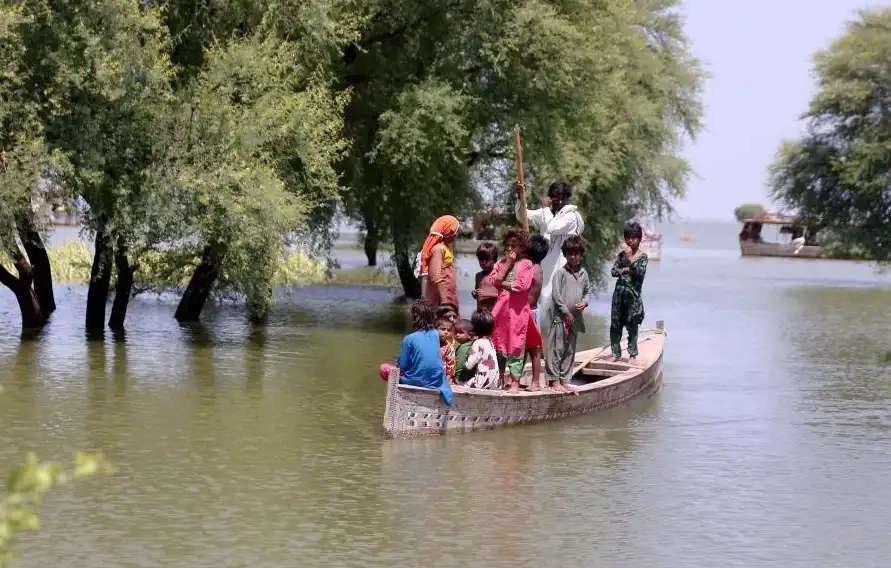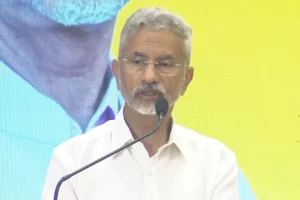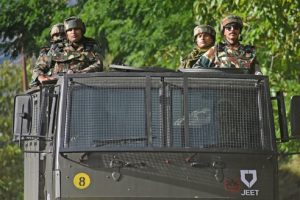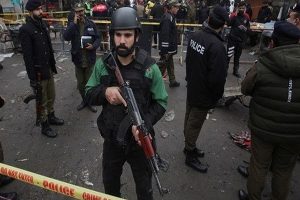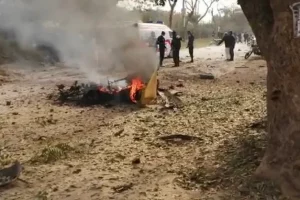International organisation Transparency International-Pakistan (TI-P) has urged Pakistan Prime Minister Shehbaz Sharif to ensure transparency in flood relief operations. The South Asian nation is battling an extreme flooding event that has seen one-third of Pakistan under water.
Strangely, the letter that TI-P has sent to Sharif has also been copied to at least half-a-dozen international organisations and bilateral agencies.
TI-P has also sent the letter to Transparency International-Germany, the International Monetary Fund (IMF), the World Bank, the UN, USAID and even the European Commission’s humanitarian department, reported Pakistani newspaper Business Recorder. The letter mentions the devastation caused by heavy rains and landslides following which Pakistan has declared 72 districts out of 160 districts as “calamity hit”.
‘Pakistan leaders are always interested in photo opportunity. They don’t help us’- says a flood victim from Sukkur,Sindh.
These are majorly PPP voters, where are the leaders now?#SindhNeedsDisasterRelief
A video by @AJEnglish @SINDHI_SANJ @SindhiFDN pic.twitter.com/PlOOMXVIyT— THE SINDHI NARRATIVE (@TSNARRATIVES) September 7, 2022
Last week Islamabad, along with the UN Secretary-General Antonio Guterres, had launched a global appeal seeking $160 million from the world to provide flood relief. International partners have already pledged $500 million while Pakistan believes it needs more than $10 billion for relief, rehabilitation and reconstruction of damaged housing and infrastructure.
Even as Pakistan has rushed to the UN and the rest of the world for providing relief, it continues to ban international NGOs from working in the country. The enormity of the devastation, and pressure from civil society, has not moved the Pakistan government to lift the ban on the international development sector and allow it to provide humanitarian aid to the flood victims.
The ban had been imposed after suspicions emerged that NGO workers had leaked out information on Osama bin Laden’s hiding place in Abbottabad, causing much embarrassment to the government and the Pakistani army. Islamabad had been caught fooling the US–its war-on-terror-ally, which had been hunting for Laden for over a decade in close association with Pakistan.
Local organisations are mounting pressure on the government to allow international humanitarian NGOs to help the flood-hit millions across the country.
Transparency International’s letter to Sharif and half-a-dozen other international and bilateral organisations stems from a widely-held belief that the generous flood relief rushing into the country would get embezzled because of poor governance and widespread corruption. Just last week the world had looked on in disbelief after a luxury Bentley Mulsanne car stolen from London was found parked in the driveway of a Karachi resident.
The luxury car could not have been stolen and transported over seas without the involvement of Pakistan’s corrupt diplomats, many of who are under investigation for sexual offences as well as human trafficking in Europe.
In January this year, the Corruption Perception Index (CPI) by Transparency International had shown that Pakistan slipped by 16 spots on the corruption list. Of the 180 countries which had been ranked, Pakistan stood at 140 as compared to 124 out of 180 just a year earlier.
In its article, Business Recorder says that Transparency International, in its letter to Sharif, has recommended involving affected communities, women, vulnerable and marginalised social groups. It also wants “full transparency in aid flows, allocation, procurement and distribution process”.
The letter says that the national tracking system should be made accessible to everyone. It also wants the government to enforce anti-corruption measures as well as provide for internal control and external auditing.
Importantly, Transparency has said that all NGOs and civil society organisations which are collecting donations should ensure full transparency as they spend the money on flood relief.
Last week, Paris-based Pakistani exiled journalist Taha Siddiqui had conducted a ground-based investigation that internationally proscribed terror group Lashkar-e-Taiba (LeT) had been seen collecting donations and delivering relief work to masses. Siddiqui’s investigation, supported with photographs and fact-checking, said that LeT chief Hafiz Saeed’s son Hafiz Talha Saeed was reviving the banned group with other senior leaders.
Also Read: Battered by floods, can Pakistan restore the Mohenjo Daro world heritage site?
Hindu volunteers in Noshki step up aid in Balochistan floods






